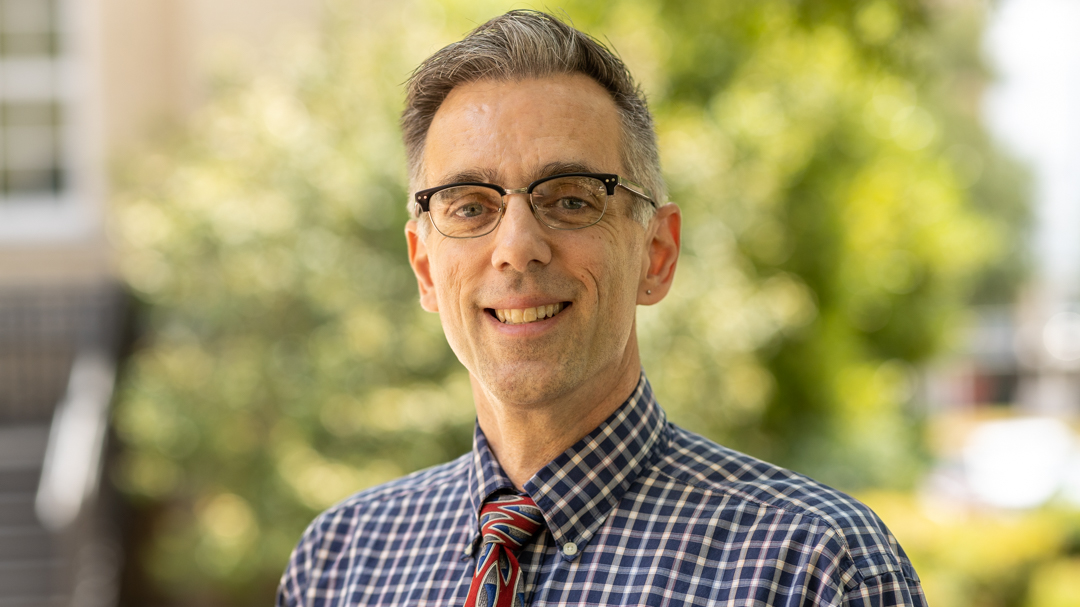The Sacredness of Sharing Life Together: Counseling Education at DTS, with Dr. Andi Thacker, Associate Professor of Counseling Ministries
Where does your history with DTS begin?
I came to DTS to start my master’s in January 2004. I finished in 2006 and took a year off to work on my licensing hours. In 2007, I started my doctoral program at the University of North Texas, and it was after my first year there that I got a call from Dr. Chip Dickens at DTS. He said one of the faculty was having to take a semester off for medical reasons, and the person they’d lined up to fill in for him had to back out at the last minute. Chip asked if I’d be interested, and I said, “Yes, I would love to do that!” I’d taught an undergraduate course as part of my doctoral program, but teaching was still pretty new for me when I got the call from DTS. I started adjuncting and realized that I really love counseling education. So I steered my career path that way as I completed my doctorate. I joined the DTS faculty full-time in 2014, and I’ve been here ever since.
What is something that surprises you about counseling?
As a counselor, I’m constantly amazed at people’s resilience. God made us to be able to change. I hear about some of the most horrific circumstances, and yet people have been able to make it through.
In education, I’m still surprised that I get to be such a part of students’ lives. When I was a student, I was pretty shy and quiet, hoping I wouldn’t be noticed. So it delights me that students want to share their world with me. I keep a folder of encouraging notes from students, and it feels really sacred to me that they bring me into their lives.
How do you de-stress from all that you hear during counseling sessions with clients?
I have a kind of mantra that helps me keep the right focus. I’ll say to myself, “God loved them first. God loves them most. He will take care of them.” That reminds me that I have a certain capacity, but I don’t want to get out of my lane and take on more than God is calling me to. Outside of work hours, I enjoy spending time just watching TV with my family, and I also love to be creative with crafting, like crocheting and photography.
What is one of your specialty areas within counseling?
I’m trained in play therapy. That works on the idea that kids’ natural language is play, and toys are their “words.” Given the right environment, then, kids will naturally play out and process what’s going on in their world. In consultation with the parents, the therapist tries to provide the right environment. In nondirective play therapy, I don’t ask questions; I follow the kids’ lead. The core of what brings about change is the therapeutic relationship, which is based on what’s called “unconditional positive regard”—that is, I fully accept the full personhood of the child. With those conditions in place, kids will play out what they need to process in therapy.
So, because this is nonstructured play, rather than talking, does this method work across cultural boundaries?
Yes! One of my students at DTS did an independent study project at an orphanage in Ethiopia. Even though she didn’t speak the same language as the kids, she still saw huge progress in just the ten weeks she spent there, because of the language of nonverbal communication and the language of being present with one another. It was amazing to see that you don’t even have to share the same language for play therapy to be effective.
About the Contributors

Neil R. Coulter
Neil R. Coulter completed degrees in music performance and ethnomusicology from Wheaton College and Kent State University. He and his family lived in Papua New Guinea for twelve years, where Neil served as an ethnomusicology and arts consultant for Wycliffe Bible Translators. In 2015, he helped design and launch the PhD in World Arts at Dallas International University. He teaches doctoral courses in theory and ethnography at DIU’s Center for Excellence in World Arts. At DTS, he teaches about art, literature, film, and theology, and he is senior writer and editor of DTS Magazine. Neil is married to Joyce, and they have three sons.
